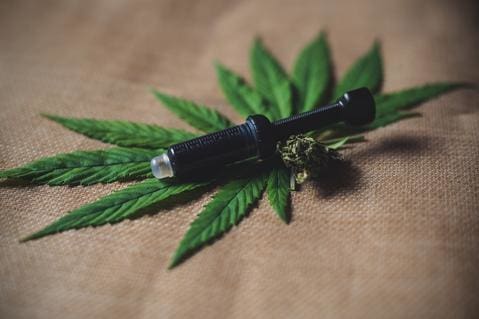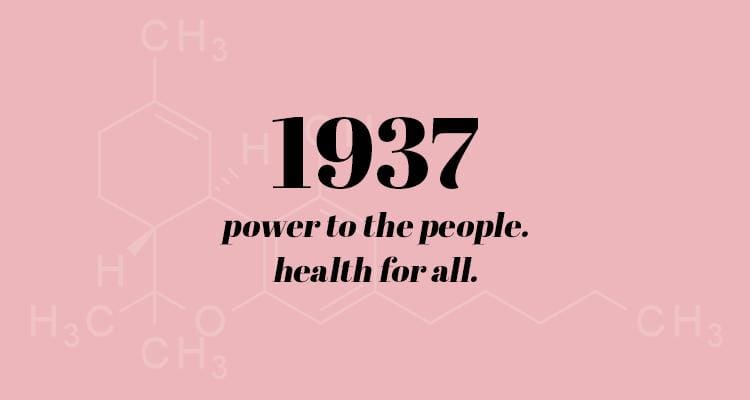CBD & Epilepsy: 65 Million People Are Suffering

There are 65 million people worldwide with active epilepsy, according to Healthline, and 3.4 million of these individuals reside in the United States. The Centers for Disease Control estimate that 470,000 epileptic people in the United States are children.
Epilepsy is a brain disorder causing mild to severe seizure episodes. These episodes are classified by Healthline as Focal Onset, Generalized, and Unknown Onset.
Focal Onset: These seizures are placed on the mild end of the scale. Throughout a focal seizure episode, people are typically able to continue doing simple tasks and maintain motor control. Around 60% of epileptic seizures are Focal Onset.
Generalized: Although these seizures can start as a Focal Onset seizure and seem milder, they can quickly progress into a serious medical emergency. Generalized seizures are characterized by the commonly-perceived body symptoms of uncontrollable jerking, falling, and complete loss of motor control.
There are multiple sub-categories within the Generalized classifications. Each includes different physical symptoms that can be present during an episode such as muscle stiffness, jerking, and loss of muscle tone. It’s estimated that Generalized seizures account for 30% of diagnosed epileptic individuals.
Unknown Onset: The cause of these seizures is still unknown. They differ from the previous seizures as they are characterized by “flexion or extension of the extremities…” according to Healthline. These and other non-epileptic seizures account for about 20% of seizure disorders.
These disorders are especially difficult for children and teens. One teen, while walking into school, became unresponsive during a conversation with their peers. Shortly afterward, they collapsed and immediately went into full-body convulsions. It terrified her classmates and ended in an ambulance trip to the hospital and a diagnosis that changed everything.
Many children and adults suffer from epilepsy regularly and have difficulty finding the right prescription to ease their symptoms.
Recently, after years of tests and studies, the first Federal Drug Administration (FDA) regulated CBD drug for epilepsy was released. Epidiolex debuted in 2019, and already it’s starting to ameliorate the hardships for many parents and their children.

Cannabidiol vs. Tetrahydrocannabinol
Cannabidiol (CBD) and Tetrahydrocannabinol (THC) have both demonstrated to reduce symptoms associated with epilepsy.
In a study published by The National Center for Biotechnology Information (NCBI), many patients experienced adverse effects from consuming tetrahydrocannabinol. Their symptoms included night sweats, aggression, and other withdrawal symptoms.
Although their seizures were reduced originally, many of the patients experienced an increase in seizures and negative symptoms after taking less of the drug containing THC. In many cases, their seizures also increased in frequency due to withdrawal symptoms.
The same study concluded, however, that CBD was more beneficial than TCH in preventing and treating epileptic seizures. Those who took CBD for their epilepsy didn’t experience any kind of withdrawal symptoms, and their epileptic symptoms were reduced.
Studies like this have helped many people see CBD as the natural medicine that it is. This is the reason why many parents have begun to consider treating their young children with drugs like Epidiolex.
Epidiolex at Work
Scientists have worked hard to prove to the FDA, and the world, that CBD can be effective in treating epilepsy. But, how does it work?
It turns out, they’ve been able to prove its validity without knowing how it works. Throughout history, CBD has been used to treat muscular health conditions. NCBI’s study on epilepsy and CBD said,
“Early documented uses of cannabis to treat seizures include a Sumerian text from 2900 BCE and an Arabian document from the twelfth century. In 1854, the US Dispensatory listed cannabis to treat neuralgia, depression, pain, muscle spasms, insomnia, tetanus, chorea, insanity, and other disorders. Cannabis was valued for its analgesic, anti-inflammatory, appetite-stimulating, and antibiotic properties.”
And still, the study further documented the use of the Cannabis plant throughout the 1800s. It was used specifically to treat epilepsy. Doctors praised the plant for its ability to relieve pain and other epileptic symptoms.
Today, scientists understand more about how CBD interacts with our endocannabinoid receptors. GW Pharmaceuticals (creator of Epidiolex) has been studying CBD and its effect on epilepsy.
They noted that CBD is well known for its anticonvulsant effects, but they still don’t know how those effects are enacted within the body.
Regardless of the delivery method, CBD has been proven over the years to effectively prevent and treat epileptic seizures and other muscular disorders.
Contrary Voices to CBD Treatment
Many young children with severe epilepsy diseases like Dravet Syndrome and Lennox-Gastaut have seen a huge decrease in symptoms after taking Epidiolex. However, with all scientific studies, there is a contrary voice.
In this case, many people have cited problems with the new drug. They say that Epidiolex causes liver damage. This is due to the large dosage required to treat certain forms of epilepsy.
Since Epidiolex is 90% pure CBD oil, some would assert that CBD is inherently bad for you. But it’s been shown that liver damage only occurred in those taking a high dosage of the drug Epidiolex on a regular basis.
The same people also assert that CBD has been wrongly supported in its ability to relieve symptoms of other diseases or mental health conditions. This is not completely true. Although there have indeed been no other FDA-regulated CBD drugs, it does not discount the myriad of studies demonstrating CBD’s effectiveness in treating other conditions like PTSD, anxiety, and pain management.
The majority of people would agree that CBD is a safer and more natural alternative to other medications used to treat epilepsy and other disorders.
Trapped in Regulation Nation
Getting a CBD-based epilepsy drug out on the market has been a huge hurdle to overcome. But, for many people, barriers still stand in their way—these treatments aren’t easily available to everyone.
In Texas, doctors have only recently been able to access CBD drugs for their epileptic patients. According to TMC News, Texas passed a law back in 2015 called the Texas Compassionate Use Act. This new law made it possible for certain certified physicians to prescribe low-THC drugs (like CBD or Epidiolex) to patients suffering from epilepsy and other illnesses.
It took another 2 years after that law was passed, however, for many physicians get certified. Within the last few years, many Texas have been able to gain access to these treatments and have been able to change their lives by doing so.
Texas is a good example of what’s possible for epileptic patients when the laws are eased. However, even in Texas, there are still a few requirements for patients looking to get access to CBD. They are as follows:
- Must have approval from 2 different physicians
- Only eligible for if they’ve been through at least 2 other anti-seizure medications that have failed in treatment—this is defined as having “intractable” epilepsy
- The drug must contain no more than .05% THC and have greater than 10% CBD content
Individuals with “intractable” epilepsy are the only ones getting access to CBD for seizure treatment in Texas. This leaves a huge gap for others who may not have been treated extensively or had the time to go through multiple treatments.
Still, another hurdle faces those who have already gotten approval: Cost. To treat epilepsy with CBD or Epidiolex, many parents and individuals still have to pay out of pocket. Their insurance refuses coverage whether or not they are doctor prescribed.
There have been some fantastic advances in many state and federal laws in the last few years. These changes have allowed patients to gain access to CBD. However, changes need to be made so that more people can gain access to this potentially life-changing treatment.

Future of CBD Medications
The determination of scientists is the only reason we’ve gotten this far in treating epilepsy with CBD. It took years to get Epidiolex approved by the FDA. More studies, clinical trials, and peer-reviewed articles will continue to spread across the internet. It’s possible that many of these will give us greater insight into CBD and how it can be used to treat various illnesses or diseases, like epilepsy.
The Pain News Network has already begun hypothesizing about the different scientific discoveries that indicate the potential of CBD. Some CBD derived compounds have shown abilities in treating neurological conditions while others may hold promise in treating damaged nerves.
Epilepsy research culminated in the first-ever FDA approved CBD drug. Research into epilepsy and CBD has changed the lives of many people around the world. It’s paved the way for a greater understanding of CBD and its effects on us.
This is the kind of win we can all celebrate. If you have a story to share about how CBD has changed your life, we’d love to read it in the comments below.

Amy is a life-long writer. Small town living in the heart of the Rocky Mountains has provoked something deep within her soul. She loves nature hot-spots, national parks and the freedom to write off the page. When she’s not writing, you can find her racking up fines at her local library or analyzing the latest television show. Her weekly ritual includes a coffee, a word document, and the insatiable desire to tell a story. In her spare time, Amy writes articles on Medium about mental health, spirituality, and life experiences.


